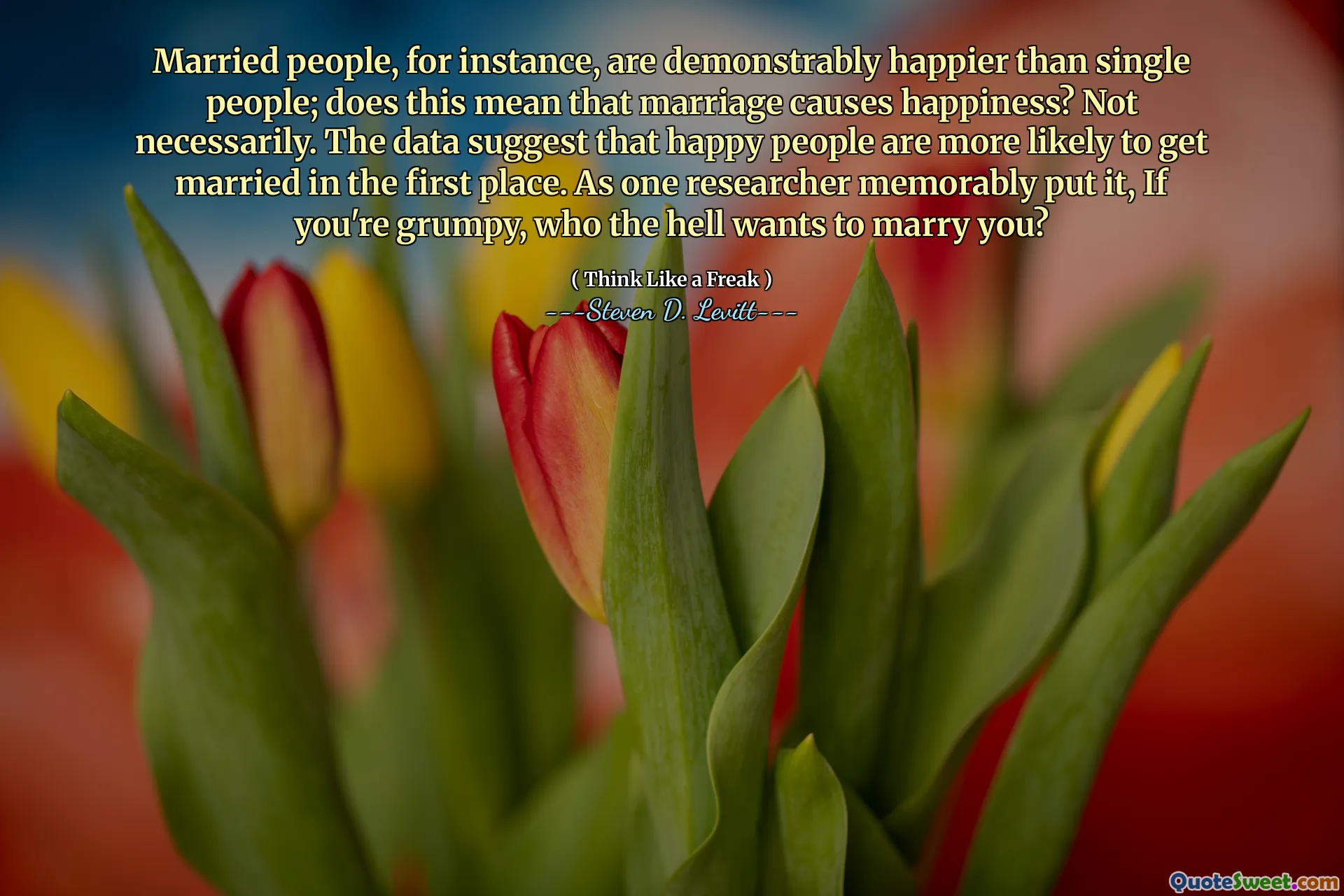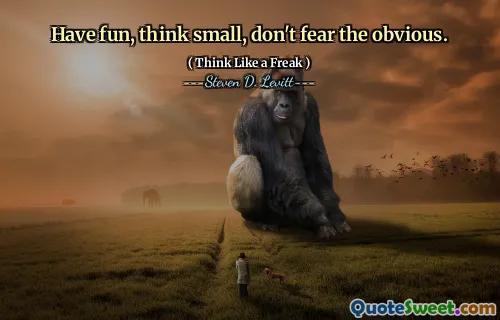
Married people, for instance, are demonstrably happier than single people; does this mean that marriage causes happiness? Not necessarily. The data suggest that happy people are more likely to get married in the first place. As one researcher memorably put it, If you're grumpy, who the hell wants to marry you?
This quote from Steven D. Levitt's "Think Like a Freak" challenges one of the most common assumptions in popular belief: that marriage inherently causes happiness. Levitt urges us to think beyond correlation and question causality. It is tempting to see data that married people report higher happiness levels and immediately conclude that marriage makes people happy. However, this overlooks the possibility of reverse causation—perhaps those who are already happy are more inclined to marry. This distinction is crucial in the realm of statistics and social science, where cause and effect relationships are often murky. The quote highlights an important lesson about critical thinking: numbers alone do not tell the whole story. It’s necessary to dig deeper, consider alternative explanations, and avoid jumping to conclusions. The humorous remark, "If you're grumpy, who the hell wants to marry you?" adds levity but underscores the practical reality that personal characteristics heavily influence life outcomes. In a broader sense, this perspective encourages us to apply skepticism when interpreting data, reminding us that the presence of a correlation does not confirm a causal link. This insight is valuable not only in academic discussions but also in everyday decision-making, shaping how we interpret studies, surveys, and reports. By thinking like a 'freak,' as Levitt advocates, we approach problems by peeling back layers and examining assumptions, which ultimately leads to a more nuanced understanding of the world.







